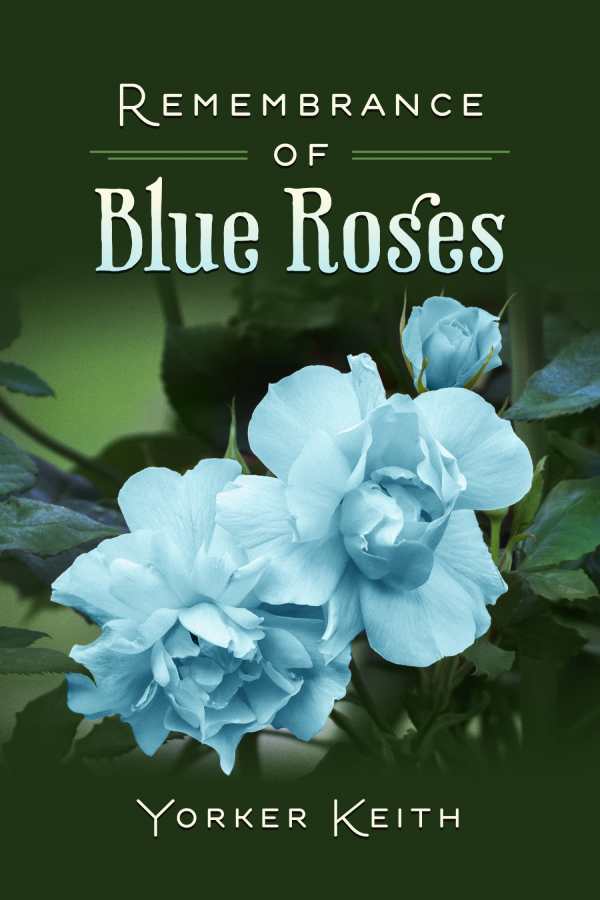
Remembrance of Blue Roses
With themes of sacrifice and the search for beauty amid tragedy, this novel lingers in idealism.
In Remembrance of Blue Roses, a divorced United Nations civil servant forges an unusual friendship with a German coworker and his wife, meeting at cultural events in New York and through a fateful tie in their family histories. Intense in its unspoken desires, Yorker Keith’s stylized novel examines the boundaries between emotional betrayal and honor.
Mark meets his colleague Hans’s wife, Yukari, at the Metropolitan Museum of Art in an opening scene that immediately sets an elegant tone. The novel recounts a rapidly evolving affinity between them. Gatherings between Mark, Hans, and Yukari offer a glimpse at their close bond. Mark’s all-consuming interest in his friends—which centers on Yukari’s attraction to him and his inability to openly act on his feelings out of loyalty to Hans—remains a simply revealed fact to accept: an unexamined, slowly simmering conflict that proves not to be a conflict after all, once tragic circumstances sweep obstacles out of his way.
In a narrative that emphasizes events, classical music, and fine arts over character development, the three main figures remain puzzling. Hans appears unaware of the current between his wife and Mark; Yukari’s motivations are loosely pinned on seemingly unresolved responses to one of Hans’s acts; and Mark himself questions whether he is mad, making remarks such as “Call it friendship, love, love-triangle, or lunacy, I didn’t care,” though the plot only hints at the impact of his moral ambiguity. No one seems particularly troubled by the situation, to the extent that Mark’s ex-wife encourages him to pursue Yukari. A plot rich with potential for mature human insights instead dissolves in a winding elegy.
Subplots involving fictional UN employees add background to Mark’s daily life while shifting the focus from the main thread. When the story does return to Mark, Yukari, and Hans, Mark’s problems are dealt with through the acquiescence of other characters and sudden events that absolve him of difficult confrontations with himself. The absence of subtlety keeps the work from reaching the deeply nuanced pitch these complex relationships would call for. The book succeeds, however, in its use of motifs. Blue roses and portraiture repeatedly return as significant touchstones that recall a season of bliss.
Representations of women also suffer. Yukari is drawn as a frail figure, and she is exoticized through Mark’s assumptions about Japanese women. A former love, Jane, is abruptly brought into the story only to serve as a temptation, and in a minor complication, a Filipino house servant is made a seductress. Depictions of Hans and Mark also reveal a flawed sense of privilege.
Remembrance of Blue Roses is an uneven story of a man whose loyalty to memory is held up as a noble act. With themes of sacrifice and the search for beauty amid tragedy, it’s a novel that lingers in idealism.
Reviewed by
Karen Rigby
Disclosure: This article is not an endorsement, but a review. The publisher of this book provided free copies of the book and paid a small fee to have their book reviewed by a professional reviewer. Foreword Reviews and Clarion Reviews make no guarantee that the publisher will receive a positive review. Foreword Magazine, Inc. is disclosing this in accordance with the Federal Trade Commission’s 16 CFR, Part 255.
